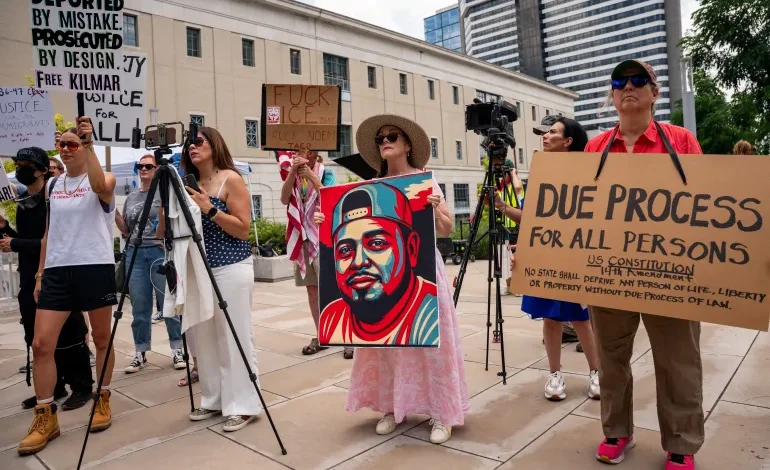U.S. Government Plans to Deport Abrego García to Third Country, Say Prosecutors

The U.S. government is preparing to deport Venezuelan national Kilmar Abrego García to a third country, prosecutors confirmed, as part of a controversial plan rooted in the seldom-used Alien Enemies Act.
Abrego García was detained in March and subsequently deported to El Salvador despite a pending federal injunction. Prosecutors revealed in filings that U.S. officials considered transferring him not back to Venezuela, but to a third nation where he does not hold citizenship.
The decision raises concerns over legal precedent and human rights obligations, as Abrego García has no known ties to the chosen third country. Legal experts warn this could violate international norms, which typically require returns to the individual’s country of origin unless safety or diplomatic circumstances dictate otherwise.
The Justice Department cited Abrego García’s classification under the Alien Enemies Act, asserting that the unique circumstances justified the third-country removal. Prosecutors emphasized that his situation aligns with historical use of the law, contrasting it with standard immigration enforcement procedures.
Opponents of the plan argue that deporting individuals to unfamiliar nations may violate due process and heighten the risk of statelessness. They highlight a growing strategy by the government to bypass domestic legal protections in immigration cases involving national security.
Current status: Abrego García remains in U.S. custody pending the finalization of detailed deportation logistics. Affected legal filings and motions—a crucial development for human-rights advocates—are anticipated later this week.
With input from Al Jazeera









The latest news in your social feeds
Subscribe to our social media platforms to stay tuned